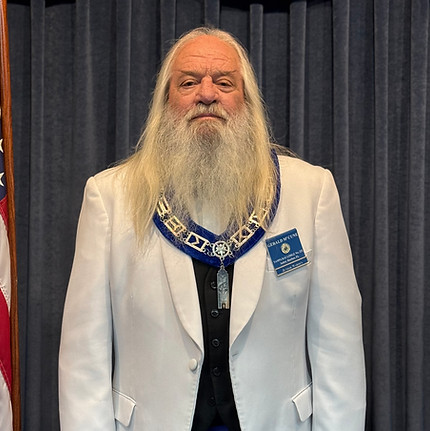
Trestle-Board
Message
From the West
Senior Warden Gerry McCune

Gerry McCune
Trestleboard Article
February 2026 – vol.1
From The West
Gerry McCune
Senior Warden
Brethren:
I am humbled you have elected me your Senior Warden for this year. I will do my best to fulfill my duties for this year.
I’m looking forward to the upcoming Lodge events we have planned and will work towards encouraging all of the brethren - including the EAs and FCs to become more involved with our events and our Lodge in general.
Everyone is encouraged to attend our Third Friday events. Come on out, enjoy a grilled hamburger or hot dog and join in the fellowship while we reach out to potential new members.
We have at long last re-built the roof of our Lodge. After a long evaluation process involving numerous roofing companies, we selected the RoofElite Company of Land O Lakes, Florida to do the job. On January 8th they went to work on our roof.
What they did
First they stripped off the existing roof to the bare decking.
Then they added a layer of roofing membrane, replaced all water damaged boards, installed new pipe boot flashings and TPO vents, and new code approved ½” fan fold insulation over the entire roof deck.
Then they installed new 60 Mill TPO membrane on top of new fan fold insulation and fastened it with screws and barbed seam plates, in accordance with manufactures specifications, hot-welding all seams to ensure a water-tight seal. Then they installed custom beat parapet caps around the perimeter of the roof. All rotted side boards were replaced.
The job came in $400 over estimate because additional unforeseen rotted boards that needed to be replaced. RoofElite graciously absorbed the cost overage as a donation to our Masonic Lodge.
We now have a brand new roof with a 10-year workmanship warranty and an additional manufacturer’s warranty on materials with an expected life-span of 20-years.
We’re now focusing our attention on other work we must do to ensure our Lodge building is in good repair.
Best regards,
Gerry McCune
Senior Warden
(Insert pictures with caption)
Duane Mertz

